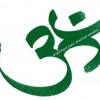na duruktāya spŗihayet. [Rigveda 1.41.9]
What is the crux of humanity society as we know it? What would be the utmost thing we would need to remain human and in high spirits – money, fame, car, internet, soccer? Would any thing make us really happy? Let us look at what ultimately makes us average humans happy.
We are not happy by things, but by people. A simple test, if we had no people to share with, fight with, compare with, or show off to – where would be the joy of things? A Porsche brings no joy (for long) if you can’t show off to someone!
Two years ago, we moved back to India from the U.S. after a long stay of 17 years. For a year, while my daughter’s new school was having a new building built, she whined about the limited infrastructure – small rooms, no playground, etc. – especially compared to the U.S. schools. But, she made good friends and had good teachers. When the new campus was built at the school complete with huge grounds, big rooms, and high ceilings, I asked her, “Would you rather have this new school building with no friends, uncaring teachers and an inattentive staff or would you rather have the old building with less facilities but great friends and caring teachers?” And she immediately said, “The good friends and caring teachers!”
All her whining for a year of bad infrastructure was forgotten – the friends and teachers mattered more!
So, people give us joy or sorrow. They give us joy when they agree with us, do amazing things and share their time with us. They give us sorrow when they disagree with us, do things we don’t like and don’t eat the dinner that we made while it is still hot. If they are great company, then they’ll give us sorrow when they leave us.
People give us joy and happiness, for most of us normal mortals anyways!
And how do people give us joy, apart from the short material things? By sharing their time with us along with their thoughts, likes and dislikes; by talking about sweet nothings or sweets; and sharing ideas and experiences!
All of this joy is channeled through language, the foremost of human invention – by which we can visit places simply by reading a book, listening to someone across the globe or reading this publication and understanding and enjoying.
Language is sacred. Word is sacred. Don’t abuse it; don’t abuse the power of the word. Word carries the thought. Thought carries the experience. Experience carries the divine, or the evening serial!
The wounds of arrows from a bow can still heal, but those from harsh words – they never heal, nor are they forgotten!
Harsh words caused Mahabharata, the greatest civil war ever. Once by Draupadi to Duryodhana – when, during the tour of the new palace of the Pandav, Duryodhan stepped in water when he thought there was none, and she called him the blind son of a blind father. And again when Duryodhan insulted her by asking her to sit on his bare thigh in full court which, of course, was finally broken by Bheem in the war.
Why are words harsh? Who do they hurt?
They hurt the ego in us. Because we are full of “maanya-maanitaa” meaning “I am great and I deserve respect.” They scare us, for harsh words make us realize the other person is not favorable to us.
But for most humans working at around and below average grade point, life is like that. We all have a small bird of ego captured in our (rib)cage and any hurt to this enrages the monster in us – and we go berserk with hurt ego, bruised emotions and what not.
When do we use harsh words? When we are angry or jealous. Anger comes when something gets in the way of us and what we want. Jealousy comes when someone else already has what we want! At the root of both is “our want” and mis-projection of it.
We may use harsh words to our children (our anger rather than their discipline!), our spouse (our venting rather than their fault!) and subordinates (our hurt ego somewhere rather than their bad performance).
None of these build any positive vibe, or does any real good. Words are like arrows – once shot can’t be reversed – and they rarely miss their targets either! That is why we are given two ears and one mouth – talk less, listen more. So –
~ na duruktāya spŗihayet. [Rigveda 1.41.9] ~ Avoid harsh words. ~
May you all find this a turning point in your life and practice the restraint of the tongue, never saying harsh words. Take this as a challenge in your life: how can you communicate without using harsh words and without getting angry. Not because someone else is watching, but because you are watching!
And tell us after a day or a week, how it went. How long were you able to remain un-harsh in words?
As a jack of many trades, Shashikant Joshi has edited a cultural magazine for the Indian community in Cleveland, made an audio CD of Hitopadesh, given some talks at Cleveland State University and in IIM Bangalore and maintains a blog. He has a passion for photography and believes in the phrase, as seen on his Practical Sanskrit Facebook page, “Come curiouus, Go wise.”
Below are some of Joshi’s works of photographs
[slide]
 Share on bsky
Share on bsky











Read 4 comments and reply